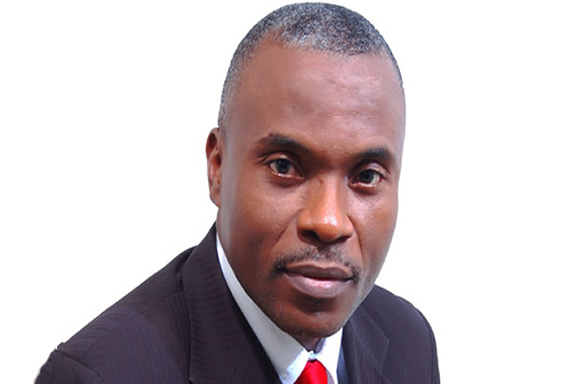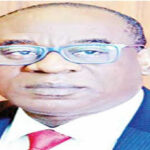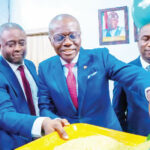
Last week, Nigerian leaders displayed their detachment and disconnection with the people once more with the issue of salary review.
The administration of President Bola Tinubu kicked off with actions that immediately impacted the people adversely. These are actions that have long-time gains but in the short term, the people will experience immediate hardship.
The first was the removal of petrol subsidy. For eight years, former President Muhammadu Buhari, despite his military background, did not have the courage to remove the subsidy. Between 2005 and mid-2023, it is reported that Nigeria has sunk N21.7tn on petrol subsidy.
All that money was money that went down the drain and helped in impoverishing Nigeria. Tinubu announced the end to the petrol subsidy, thereby sending the price of petrol from N189 per litre to over N500, depending on the exact location in Nigeria in relation to Lagos, the source of refined imported crude oil products.
With about a 300-per-cent increase in the price of petrol, cost of goods and services also shot up in response to that. Ironically, there was no increment in the earnings and salaries of the common people. There was also no provision made to cushion the effect of this subsidy removal. In an economy that has a huge challenge with electricity supply, has a huge challenge with insecurity which makes people afraid of travelling by road, and has poor rail transportation, the financial problems facing Nigerians multiplied within the first week of the administration. But in the typical fashion of Nigerian leadership, the masses were told to endure the present pain for future gain.
The second point was the action of the Tinubu administration on the Nigerian currency. The naira had faced a lot of battering under the administration of Buhari. For a currency that was exchanging in the parallel market for about N220 for a dollar in May 2015 when Buhari took over, it plummeted to about N750 for a dollar in May 2023 when he left office. Not only did the naira maintain different exchange rates under Buhari, the difference between the official and the unofficial exchange rates was so wide that it gave room for massive corruption. While the official rate was about N460 to a dollar, the unofficial rate was about N750, almost double that of the official rate. Nigeria had never seen such a wide gap in the official and official exchange rates.
When Tinubu came in, one of the earliest actions he took was the announcement, through the Central Bank of Nigeria, a clean float foreign exchange management policy. The implication is that the naira no longer has more than one exchange rate. All services like foreign medical payments, basic travelling allowance, school fees, and SME imports, that were hitherto obtained at the official rate would now be obtained at the single rate, which is almost double. That added to the pains of the masses.
Shockingly, last week, a report came out that the Revenue Mobilisation, Allocation and Fiscal Commission had recommended a 114-per-cent increase in the basic salary of public officers like the president, vice president, legislators, governors, advisers and judicial officers. The argument of the commission was that since 2007, the salary of these political officers has not been reviewed despite the fact that the consumer price index has increased scientifically by 371 per cent from 2008 to 2022.
Expectedly, the announcement immediately elicited a backlash from the public. It was the most thoughtless and tactless thing to bring to the media at a time like this. Perhaps those who made the report public did it to sabotage the present administration or to feel the pulse of the nation.
The big scam that happens in most perpetually developing countries is that the masses are always told to make sacrifices for a better future, while the leaders make no sacrifice. The masses tighten their belt and end up stuffing life out of themselves, while the leaders live like kings and queens.
If any change will occur in the fortunes of Nigeria, the sacrifices must start with the leaders through different intentional steps. One is a drastic reduction in the size of government. Nigerian leaders have a terrible habit of perceiving government appointments as gifts they can dispense to family members, friends, cronies, party loyalists, sponsors and supporters. As these people are appointed, those who know them congratulate them and celebrate the appointments. It is believed that the bread of the appointees has been buttered: God has favoured them by giving them the opportunity to enjoy the largesse that comes from political appointments. The financial status of such people is expected to be transformed.
The second is a cut-down in salaries and allowances of political leaders. It is true that political leaders in Nigeria don’t make the bulk of their money from salaries but from allowances and kickbacks, but there is a need to make a statement that today’s leaders are ready to make sacrifices. The president and vice president should set the ball rolling by cutting down their salaries. Other officers should follow suit. Let it be registered that there is a concrete sign that political leaders are reducing the amount they earn. Their allowances that are almost limitless should also be cut down.
In addition to a reduction in the size of government, there is also a need to reduce the entourage of political leaders. From the number of aircraft to the number of vehicles the president uses, there should be a sign that Nigeria is at a critical time in its finances. The number of people that escort political leaders when they travel within Nigeria or abroad should be reviewed downwards.
Similarly, the frequency of foreign trips by the president, especially, must reduce. The excuse that such trips are necessary to attract foreign investments is porous and spurious. Investors are not attracted to any country because of the foreign trips made by a president. What attracts investors is the business-friendliness of a country, which is exemplified by the level of security, economic stability, economic growth and viability, legal transparency, etc., in a country. Investors are not charity organisations. They don’t invest their money in any country based on sentiments. They put their money where they believe it is safe and will yield dividends. Once they notice that a country is conducive to investment, they flood such a country.
Just last week, the Economist Intelligence Unit released its 2023 world’s most liveable cities, and Lagos – the only Nigerian city featured on the list – placed 170th out of the 173 cities ranked. Such reports send the wrong signals to investors about a country.
Therefore, the president should focus on Nigeria and take steps to solve the key problems within. Investors will not be flocking into a country when they see that the nationals of such a country are fleeing the same country. When it is seen that Nigeria has changed course and is facing the right direction, Nigerians will indicate that by halting or reducing the exodus. Nigerians outside will be keen to repatriate their money home. That will signal to non-Nigerians that Nigeria is a safe and reliable economy to invest in.
Hope is missing in Nigerians because the leaders are disconnected from the masses through their lack of empathy and appreciation of the level of problem facing the country. The political leaders still don’t see governance as service. Even though it is clear that the country is bleeding financially and unable to take care of basic needs like education, health, electricity, feeding, etc., Nigerian political office holders still believe that governance means living large and amassing wealth at the expense of the people.





